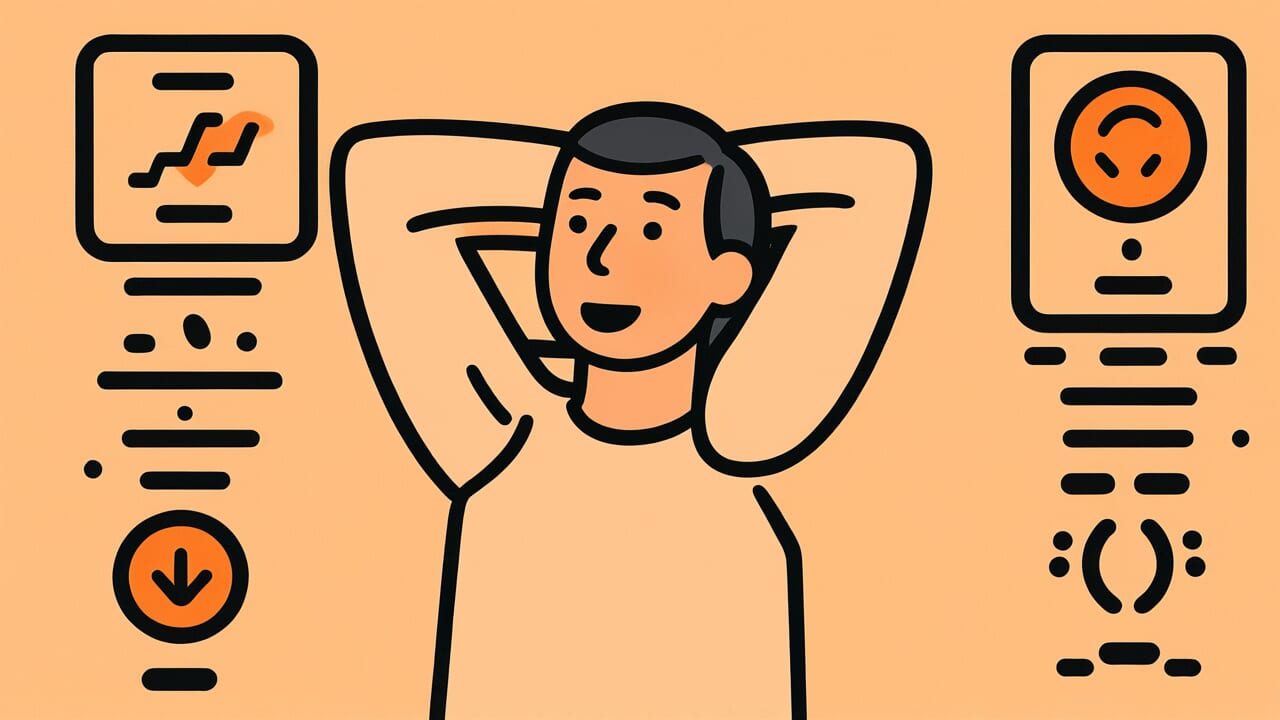How to Read “If there is pleasure, there is pain; if there is pain, there is pleasure”
Raku areba ku ari ku areba raku ari
Meaning of “If there is pleasure, there is pain; if there is pain, there is pleasure”
This proverb expresses a fundamental truth about life. Pleasant and difficult times visit us in turns.
Even when things are going well now, you should prepare for hard times ahead. On the other hand, when you’re struggling now, you should hold onto hope that better times will come.
People use this proverb in two main situations. First, it reminds successful people to stay humble and not get carried away.
Second, it encourages people facing difficulties. It tells them their current suffering won’t last forever.
Even today, people widely recognize that life has natural ups and downs. When success continues, that’s when you should prepare for the next challenge.
When you’re experiencing failure or setbacks, you should believe this is temporary and keep looking forward. This proverb teaches us the importance of this mindset.
Origin and Etymology
The exact origin of this proverb isn’t clearly documented. However, it likely emerged from Buddhist concepts of suffering and pleasure being inseparable, as well as from yin-yang philosophy.
What’s particularly interesting is how this proverb is structured. It pairs two mirror phrases: “If there is pleasure, there is pain” and “If there is pain, there is pleasure.”
The first half alone, “If there is pleasure, there is pain,” was used since ancient times. But adding the second half created a deeper life philosophy.
The first half mainly warns people not to be careless during good times. It tells them to prepare for coming difficulties.
By adding the second half, the proverb transformed. It became a message about keeping hope alive during hard times. This development reflects Japanese spirituality.
The proverb became widely used among common people during the Edo period. It crystallized the wisdom of people who had experienced life’s ups and downs.
For people surviving difficult times, these words weren’t just a warning. They functioned as an encouraging message that gave hope.
Usage Examples
- I succeeded in starting my business, but if there is pleasure, there is pain; if there is pain, there is pleasure, so I should prepare now for the next recession
- I’m depressed about failing my entrance exam, but if there is pleasure, there is pain; if there is pain, there is pleasure, so this experience will surely help me next time
Universal Wisdom
This proverb has been passed down because humans instinctively fall into an illusion. We think our current state will last forever.
When we’re happy, that happiness feels normal. We assume it will continue indefinitely.
Conversely, when we’re suffering, we feel like we’ll never escape that pain. Despair overwhelms us.
But throughout human history, our ancestors noticed something important. Life is essentially about constant change. Both good times and bad times always pass.
Just as seasons cycle, life has its own rhythms too.
This wisdom goes beyond simple observation. People who stay humble during happy times can preserve that happiness longer. They keep working hard without becoming careless.
People who maintain hope during suffering gain the strength to overcome it. They keep taking action instead of giving up in despair.
In other words, this proverb doesn’t just describe life’s truth. Knowing this truth helps us live more wisely.
We can accept change, treasure the present moment, and prepare for what comes next. This proverb teaches us this flexible and resilient way of living.
When AI Hears This
When biological cells stay in comfortable environments too long, their survival abilities actually decline. For example, muscle cells experience small damage under stress, but they grow thicker and stronger during repair.
Conversely, astronauts in zero gravity lose about 1-2% of muscle mass per day. Their muscles aren’t being used, so they atrophy.
This is called “use-dependent plasticity.” Organisms constantly remake themselves to match environmental demands. In other words, comfortable states can rob us of preparation for future hardship.
What’s fascinating is that this principle works at the molecular level too. Heat shock proteins are produced in large quantities only when cells experience stress.
These proteins become shields protecting cells from the next stress. In stress-free environments, this defense system stays dormant.
In other words, the experience of pain itself becomes a biological investment that creates future pleasure.
Even more noteworthy is the time lag in this adaptation. Just as muscle training takes weeks to show results, pain always needs a delay period to transform into pleasure.
Similarly, when you stop exercising, muscles take time to deteriorate. Current pleasure or pain is both a result of past conditions and a preparation period for the future.
Organisms are constantly optimizing themselves between past and future.
Lessons for Today
This proverb teaches modern people not to fear life’s waves. Instead, it shows us the wisdom of riding those waves.
In our era, we seek stability so much that we treat change as an enemy. But if we understand that change is life’s essence, we can live more easily.
Specifically, during smooth periods, don’t forget gratitude. Don’t take your happiness for granted.
And don’t become complacent with current success. Prepare for difficulties that might come next. Keep improving your skills, cherish relationships, and maintain your physical and mental health.
On the other hand, during difficult periods, hold onto hope. Remember that this won’t last forever.
You can view current suffering as a preparation period for your next growth. If you keep moving forward step by step without giving up, your situation will definitely change.
Your life is changing even at this very moment. Make that change your ally.
Whether in pleasant or painful times, find meaning in each experience as you move forward. This flexible and positive attitude is the greatest gift this proverb offers us.



Comments